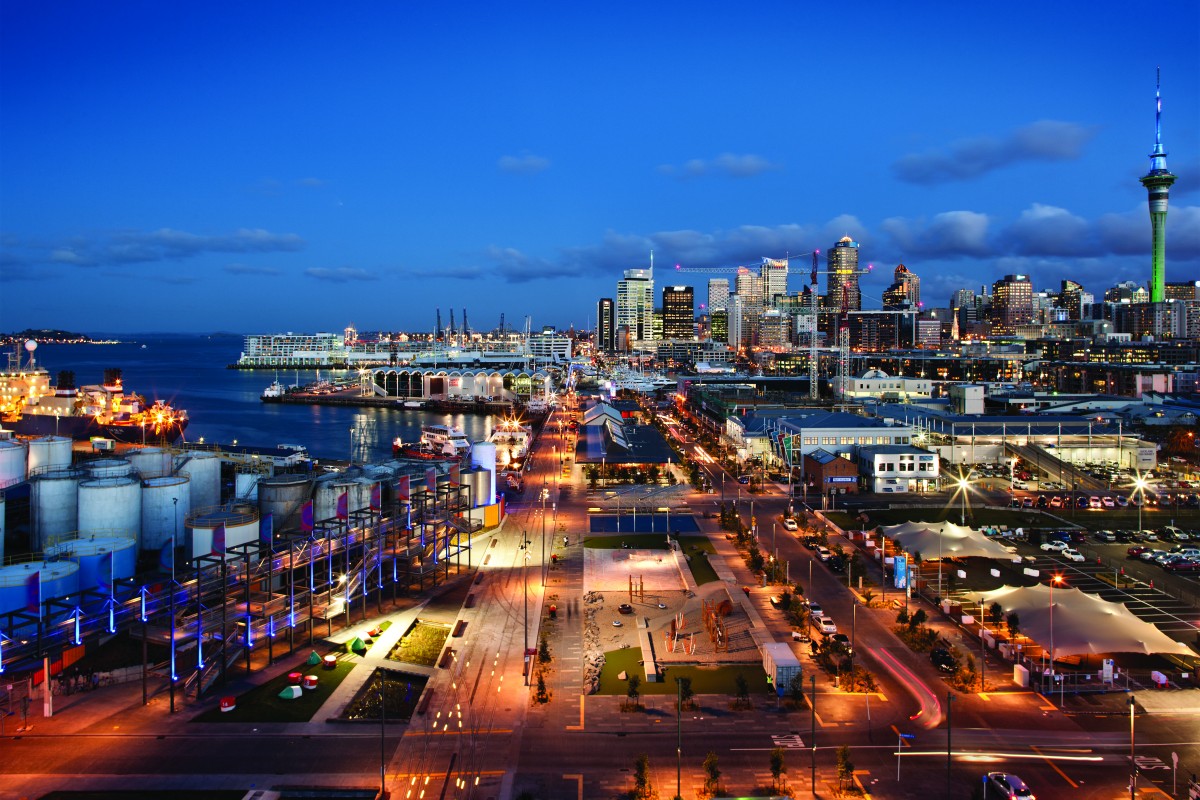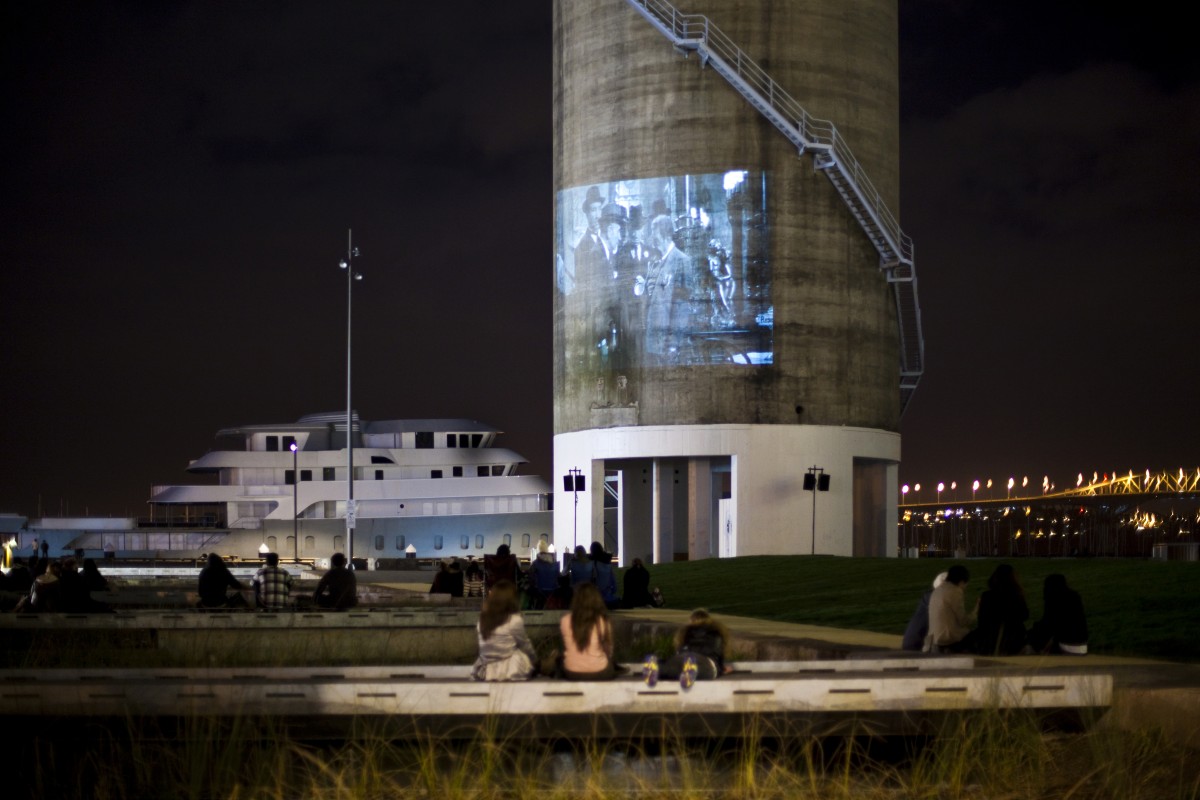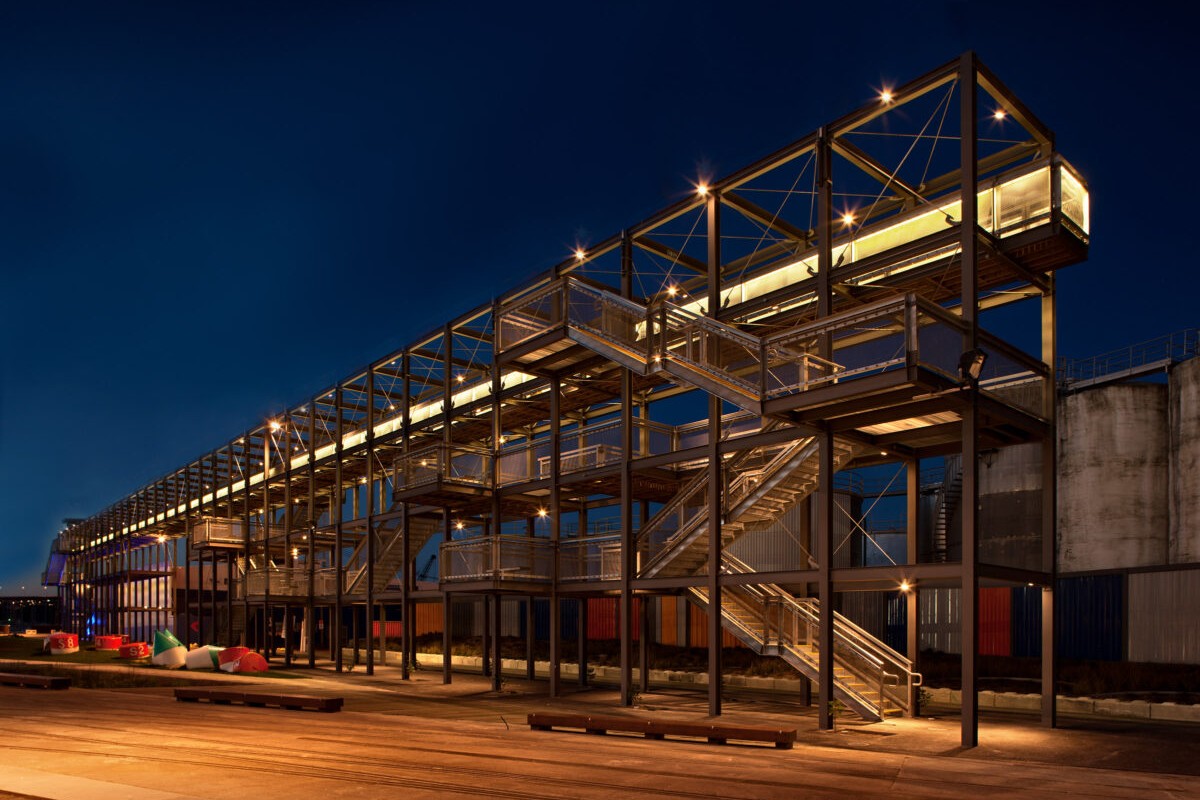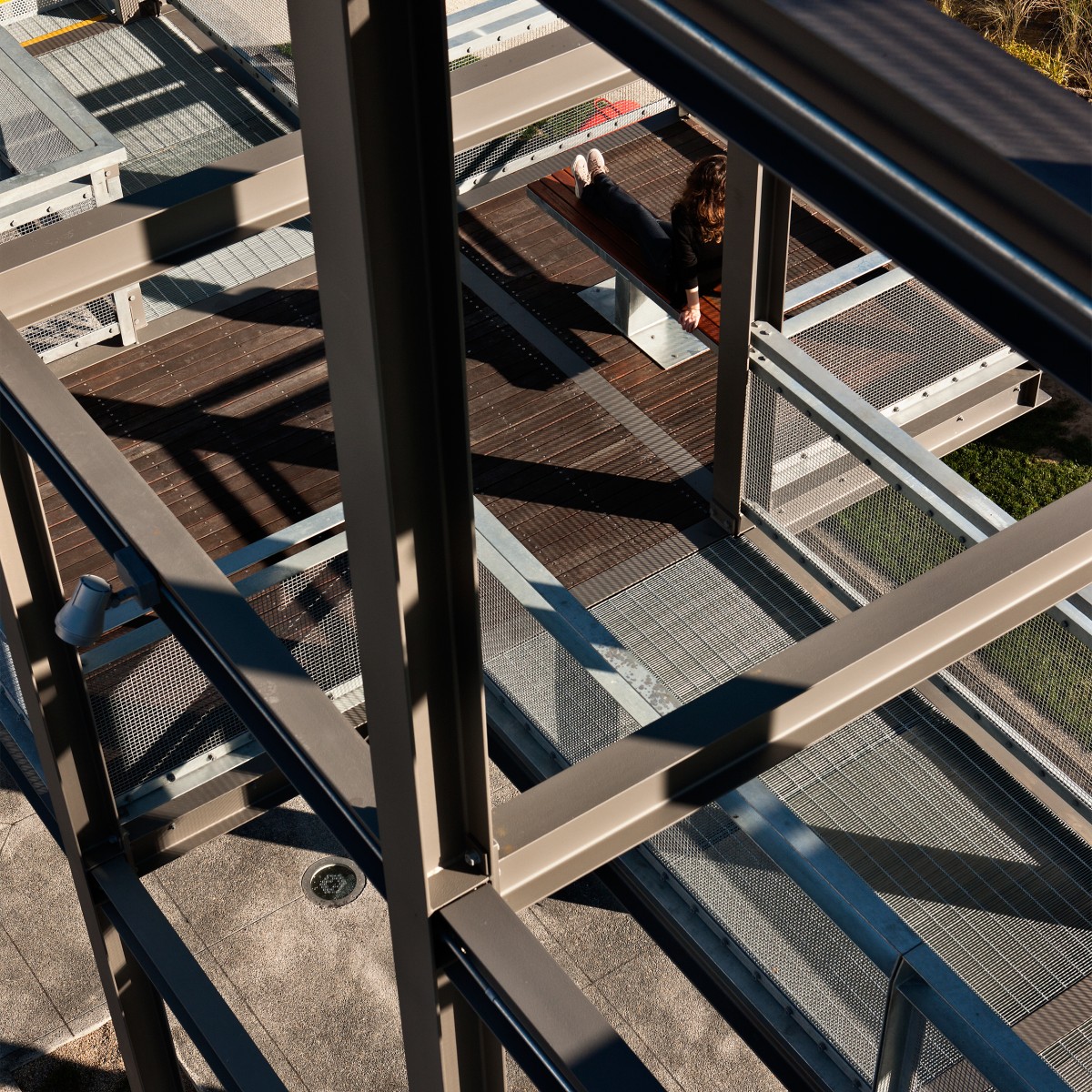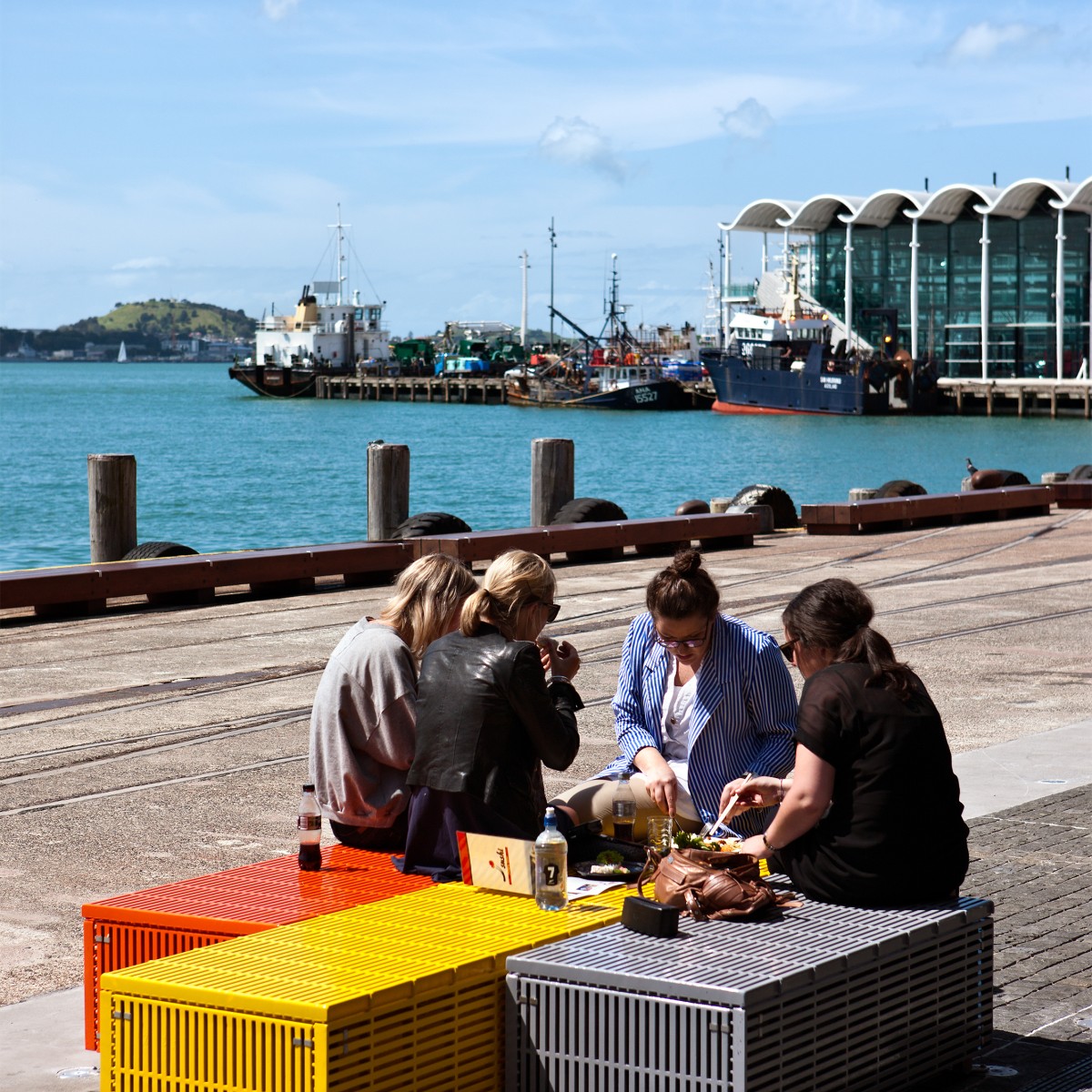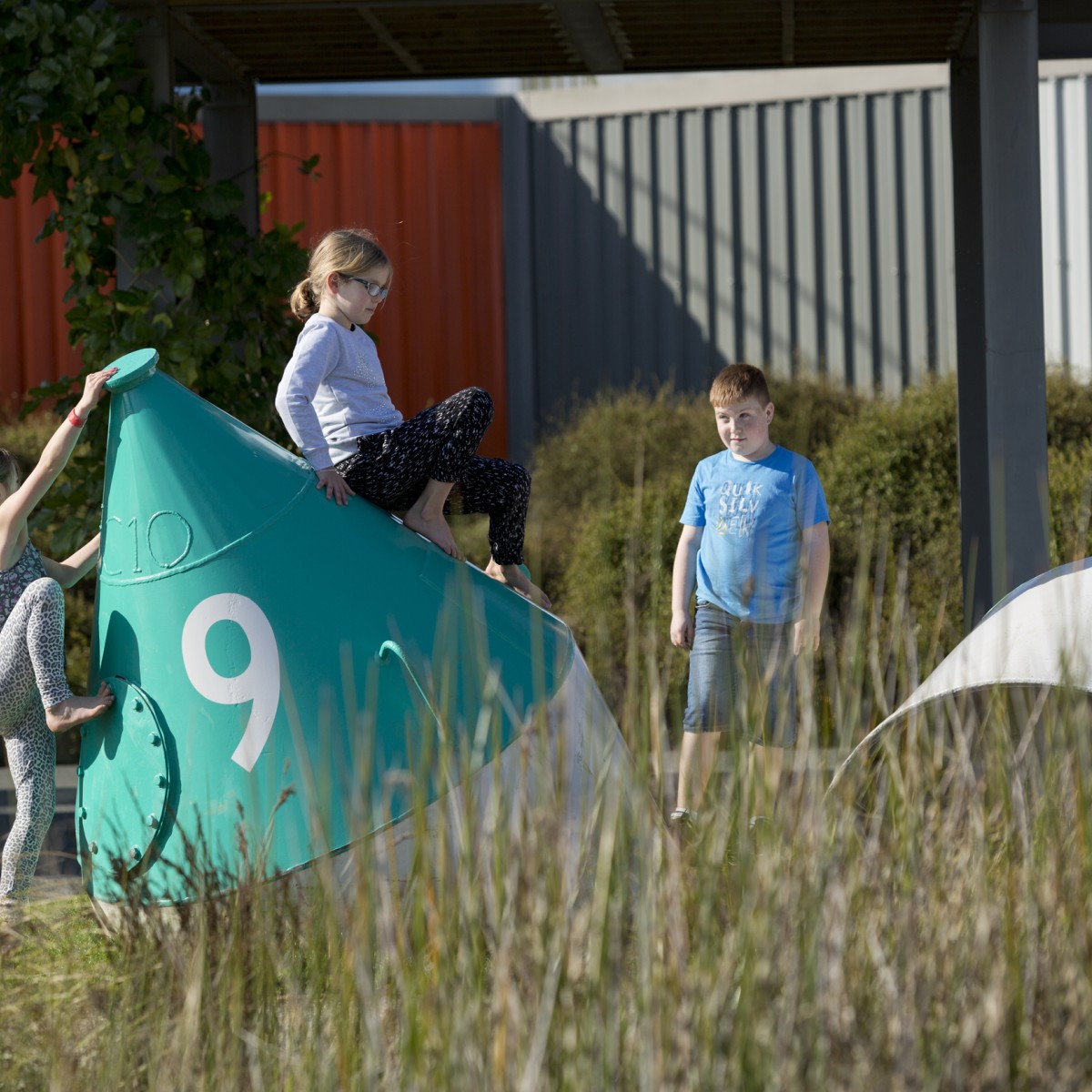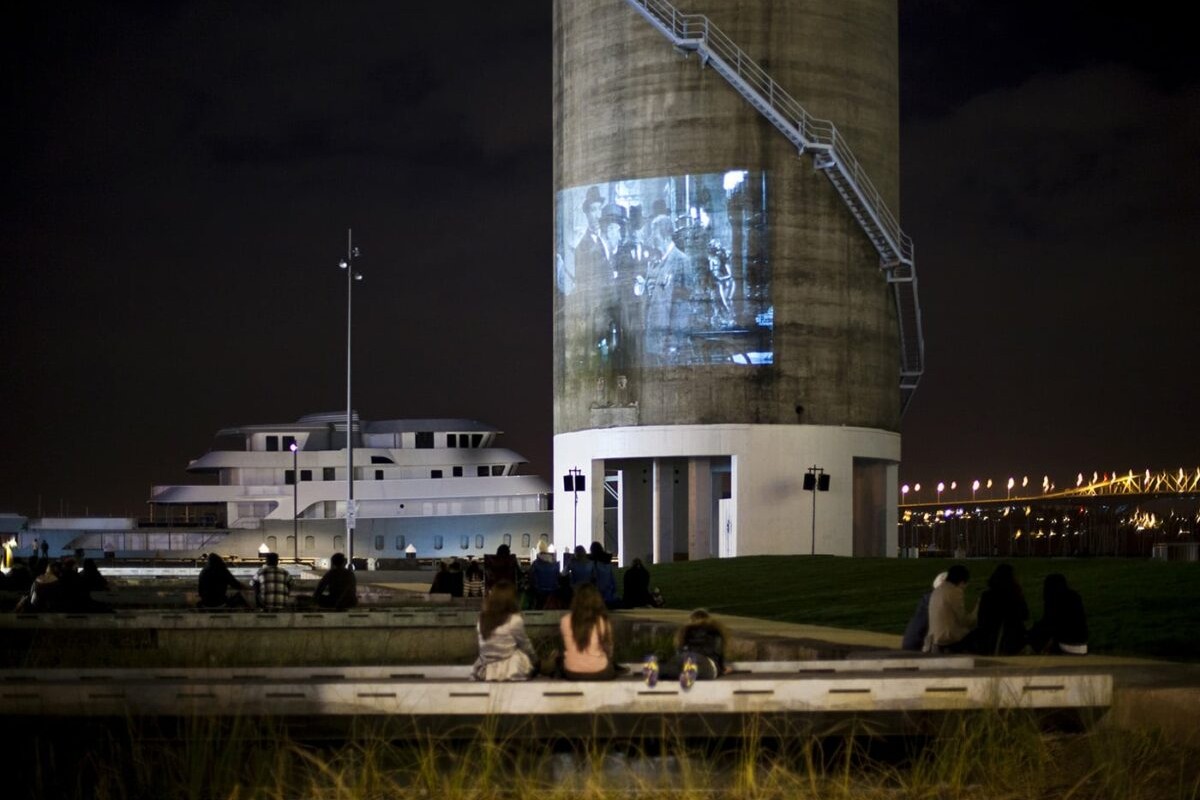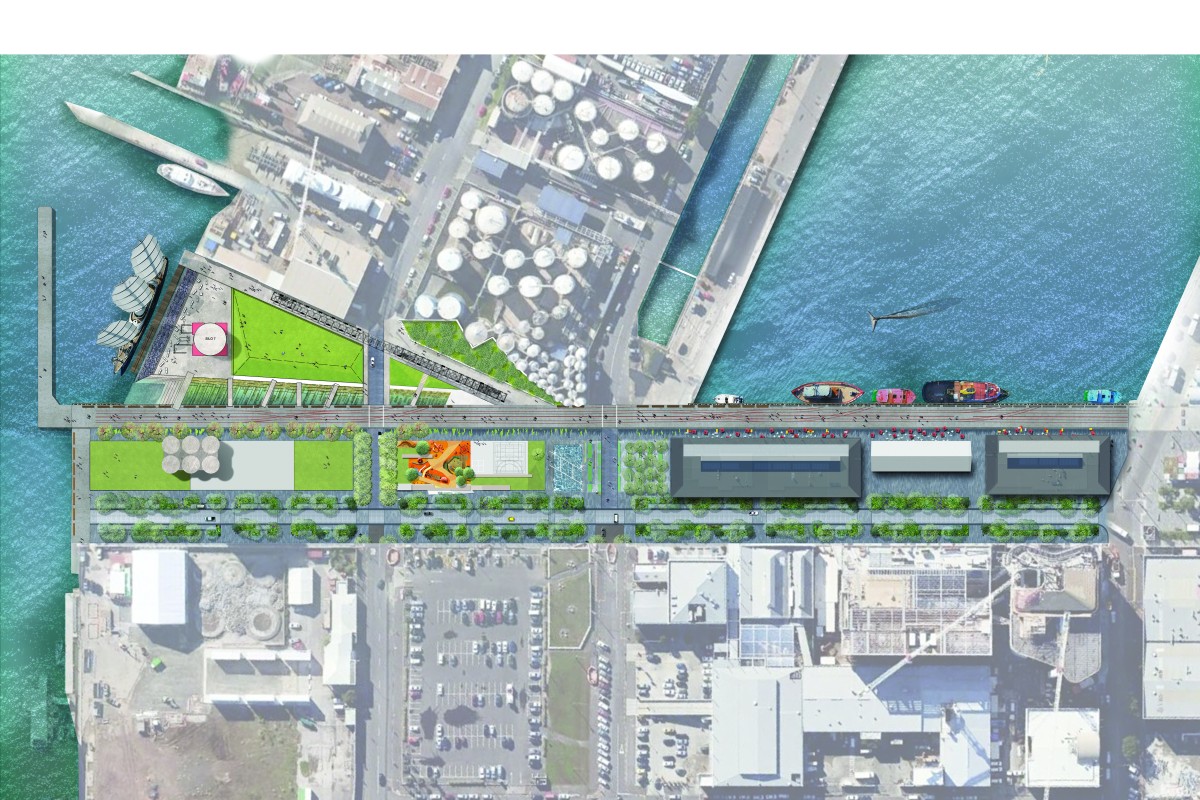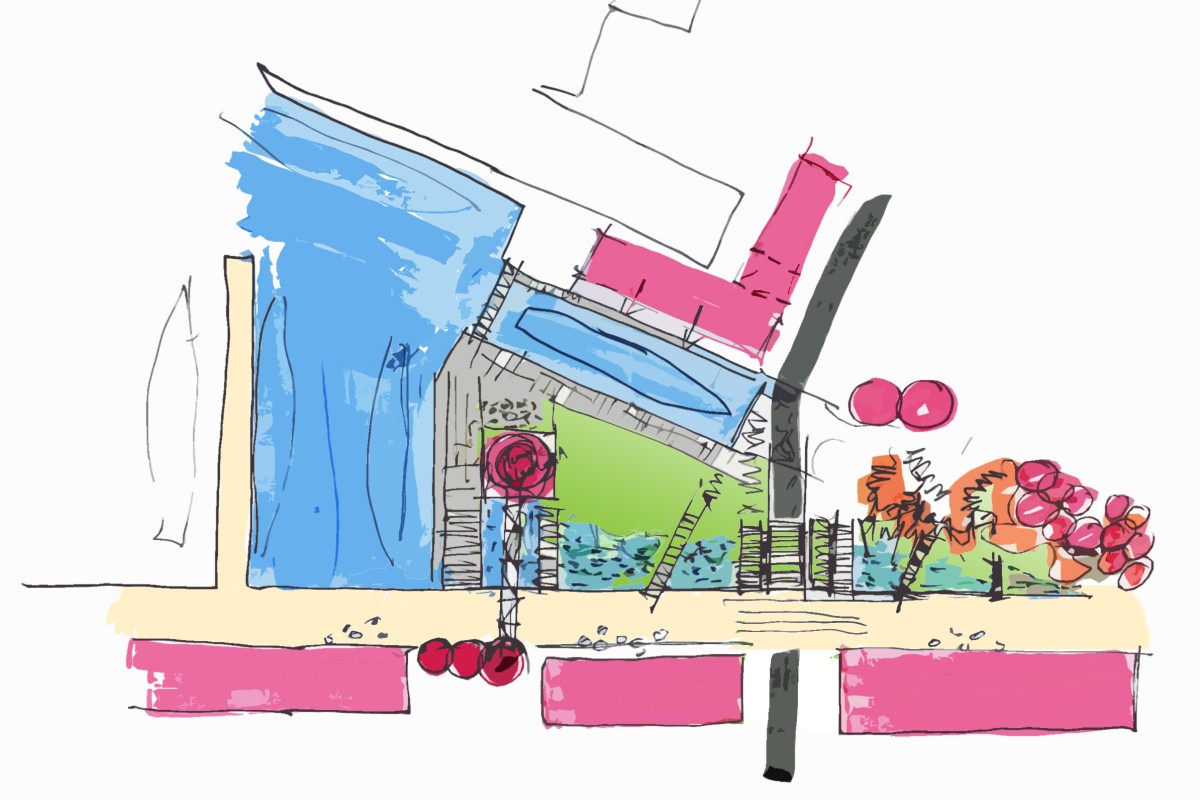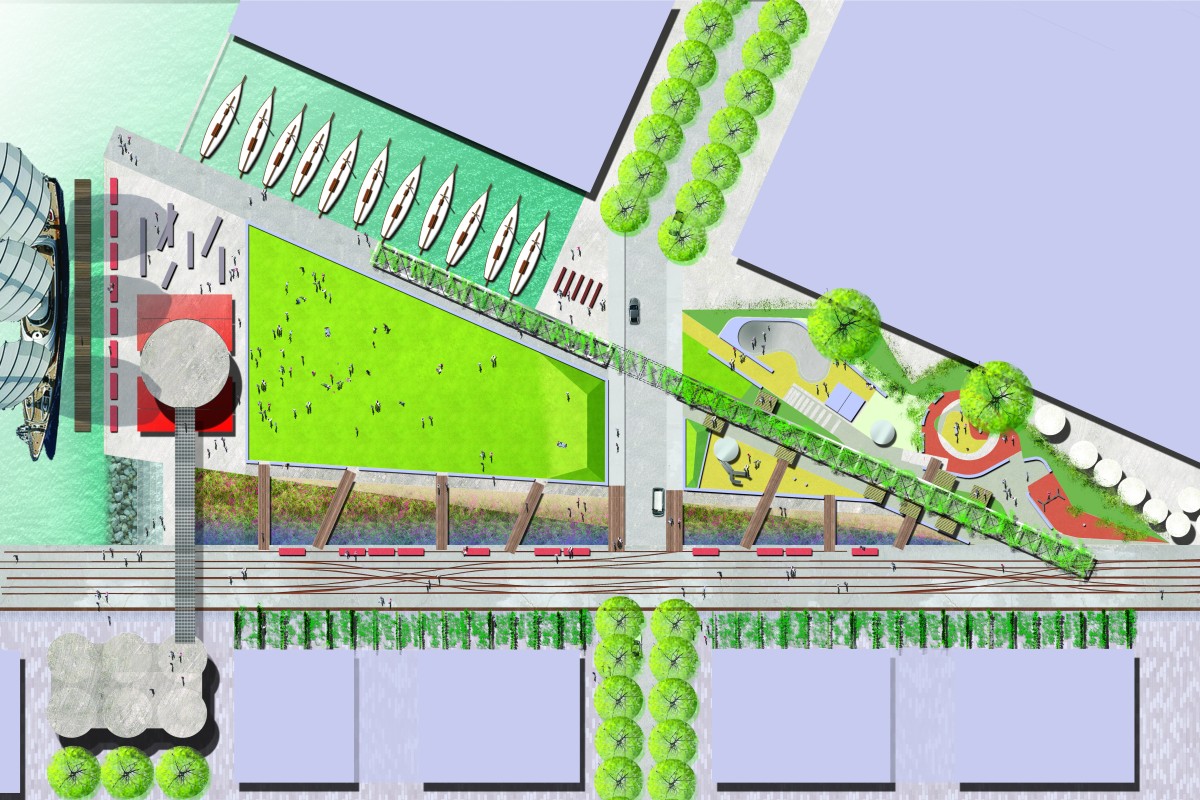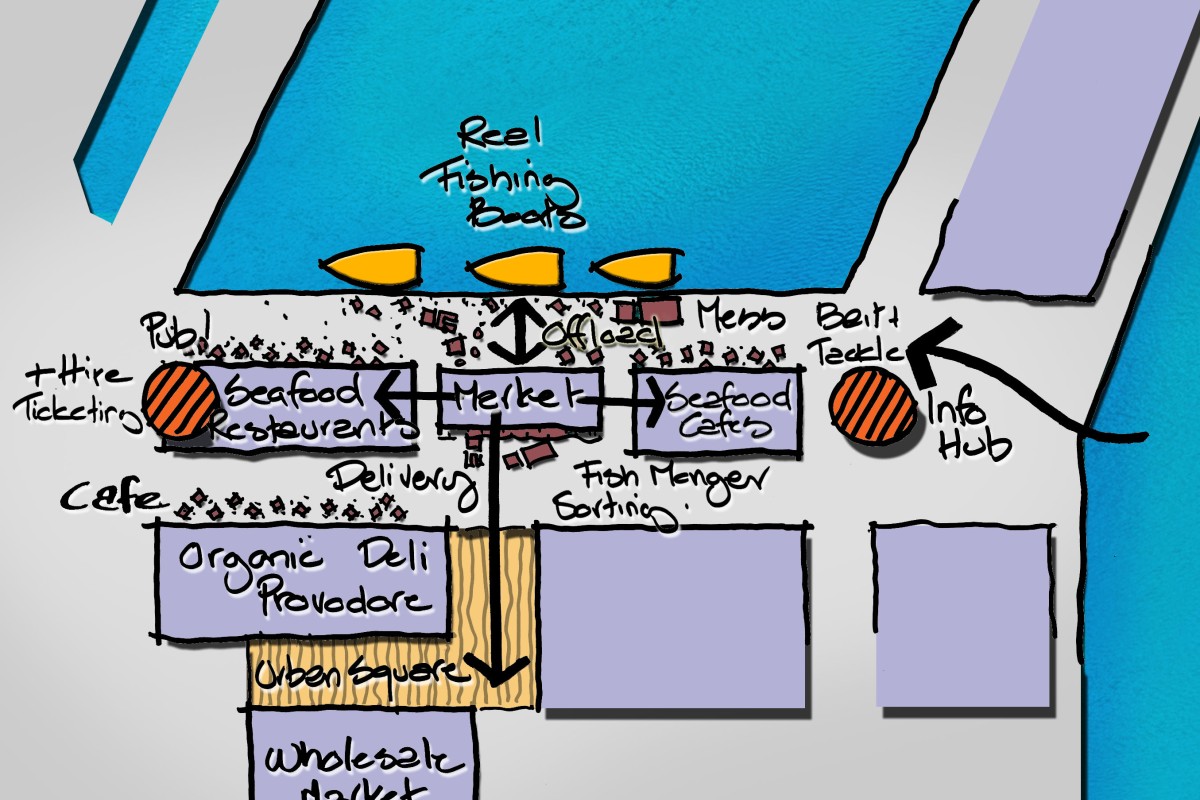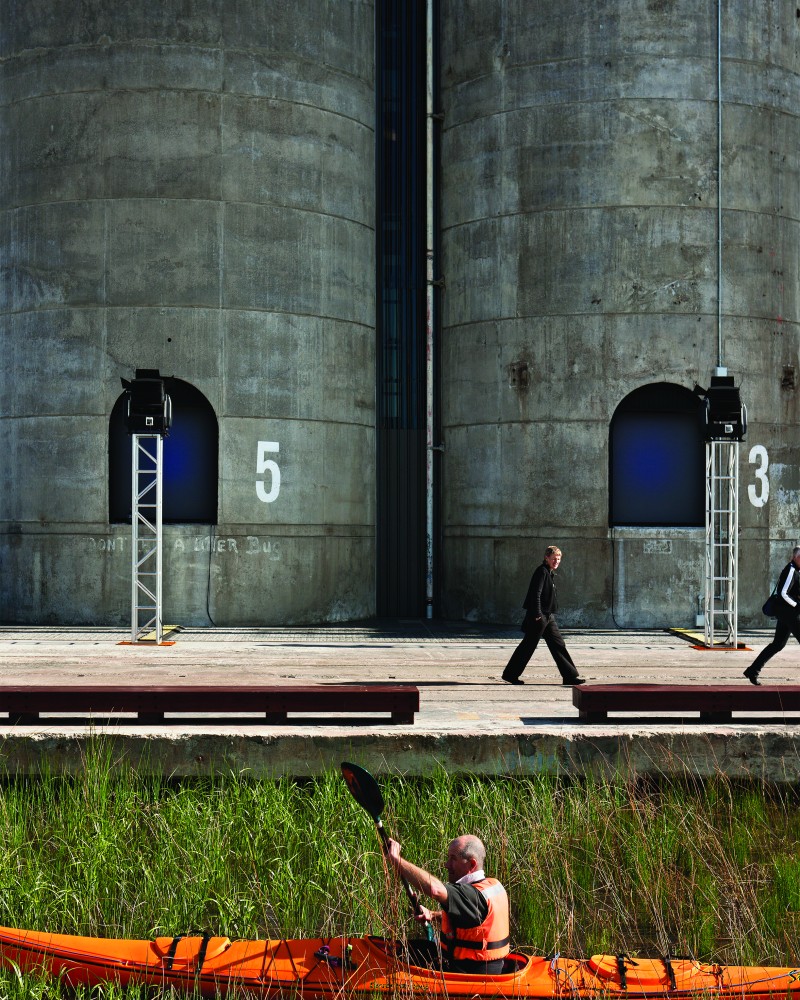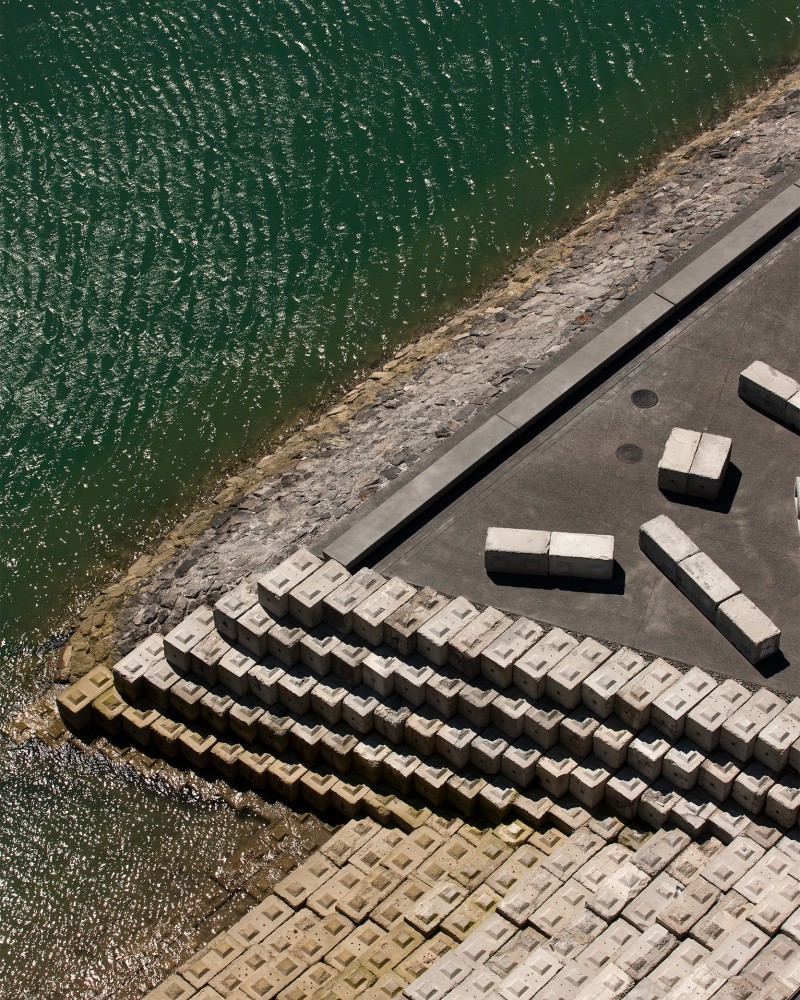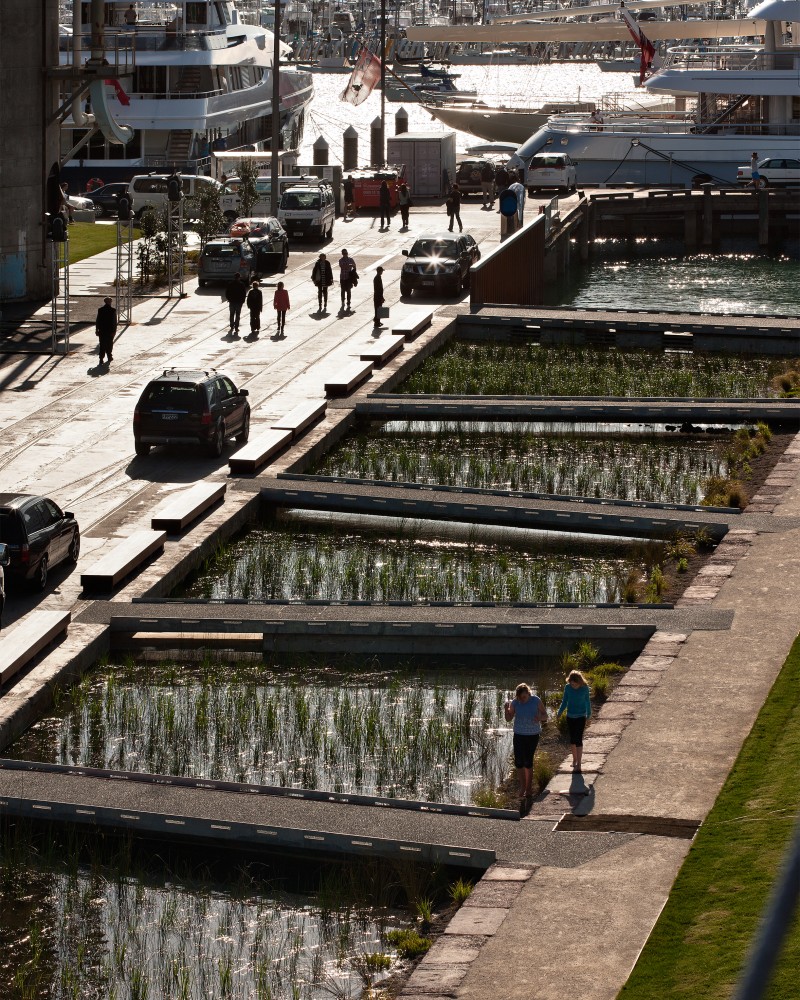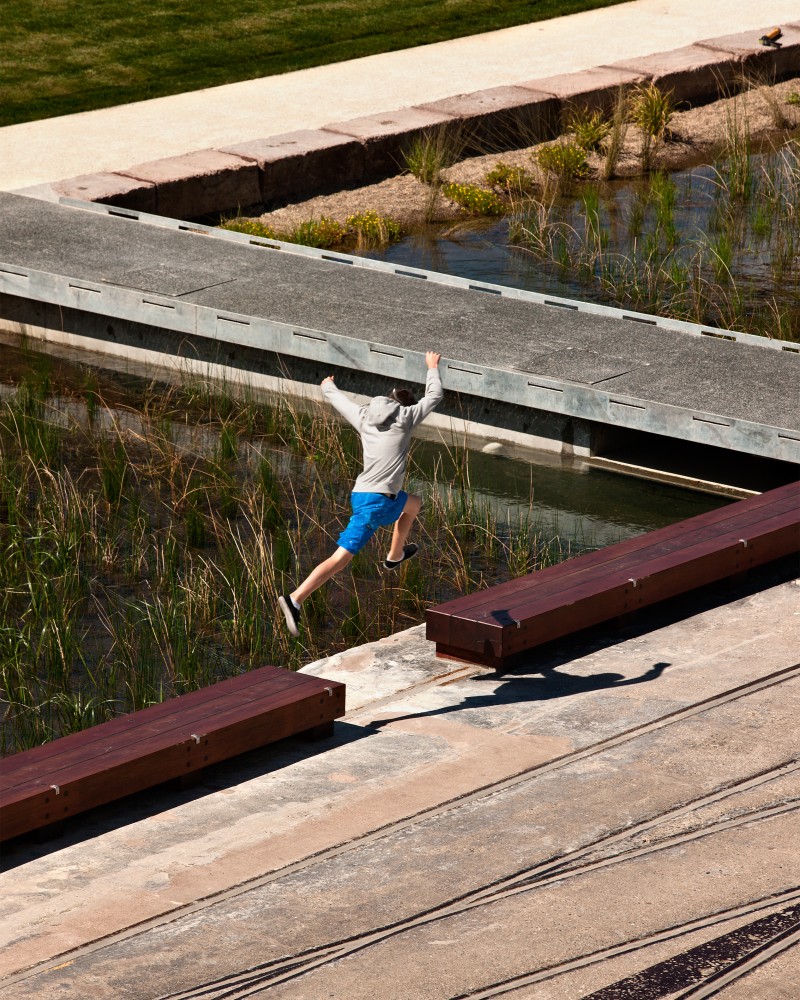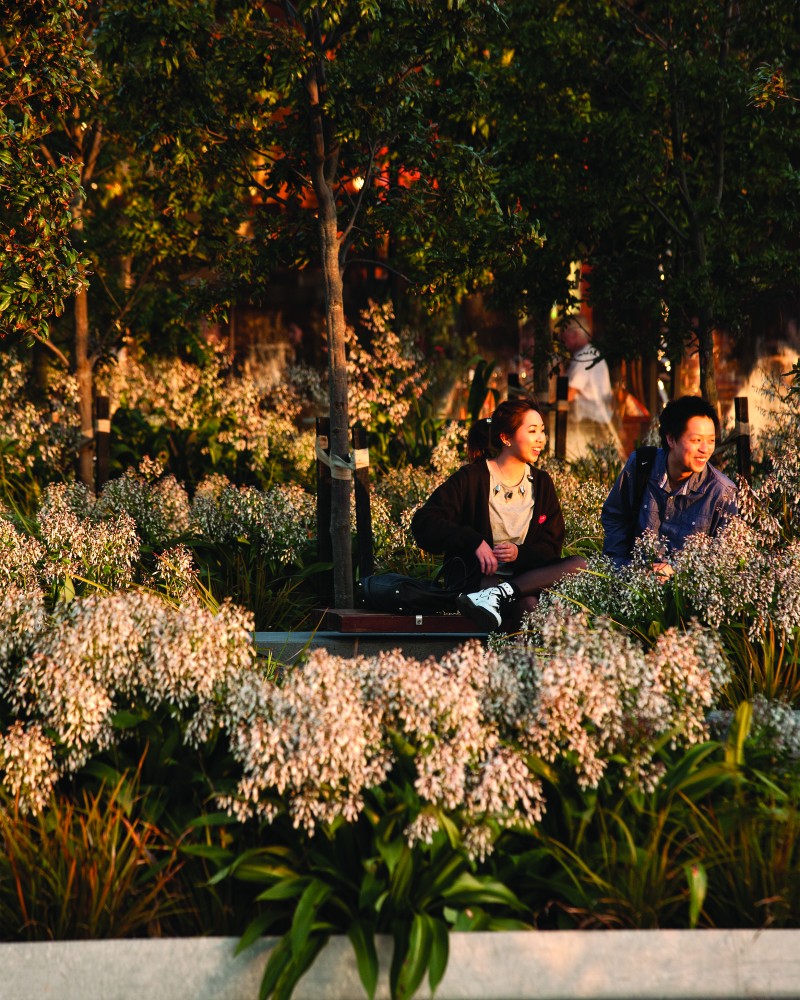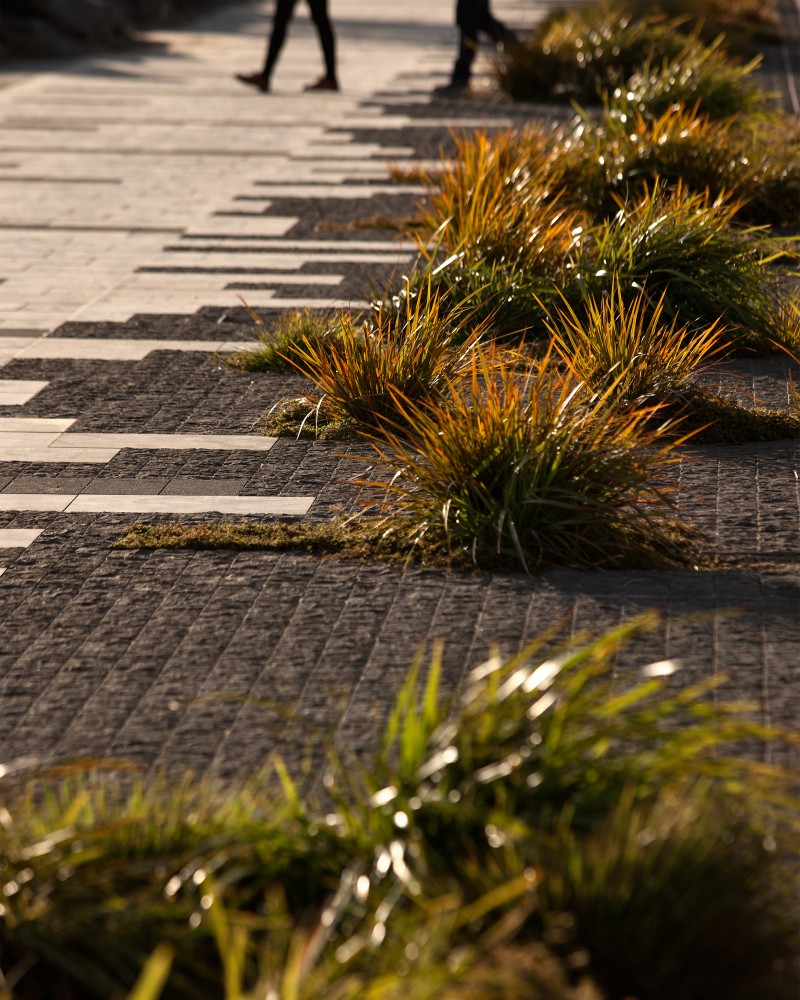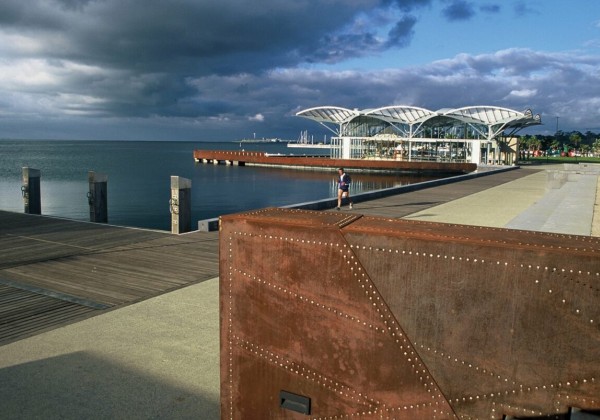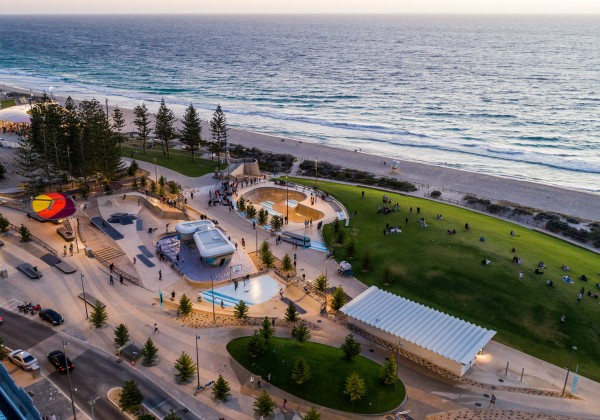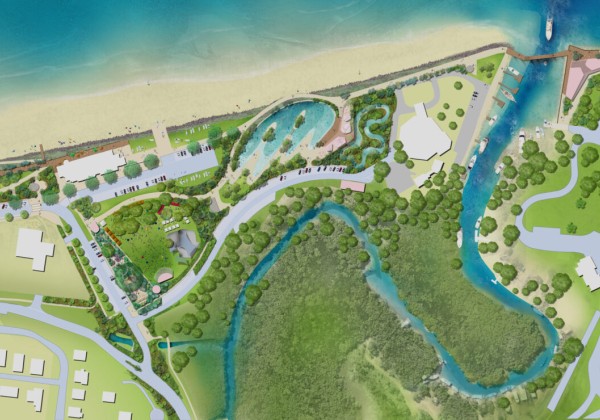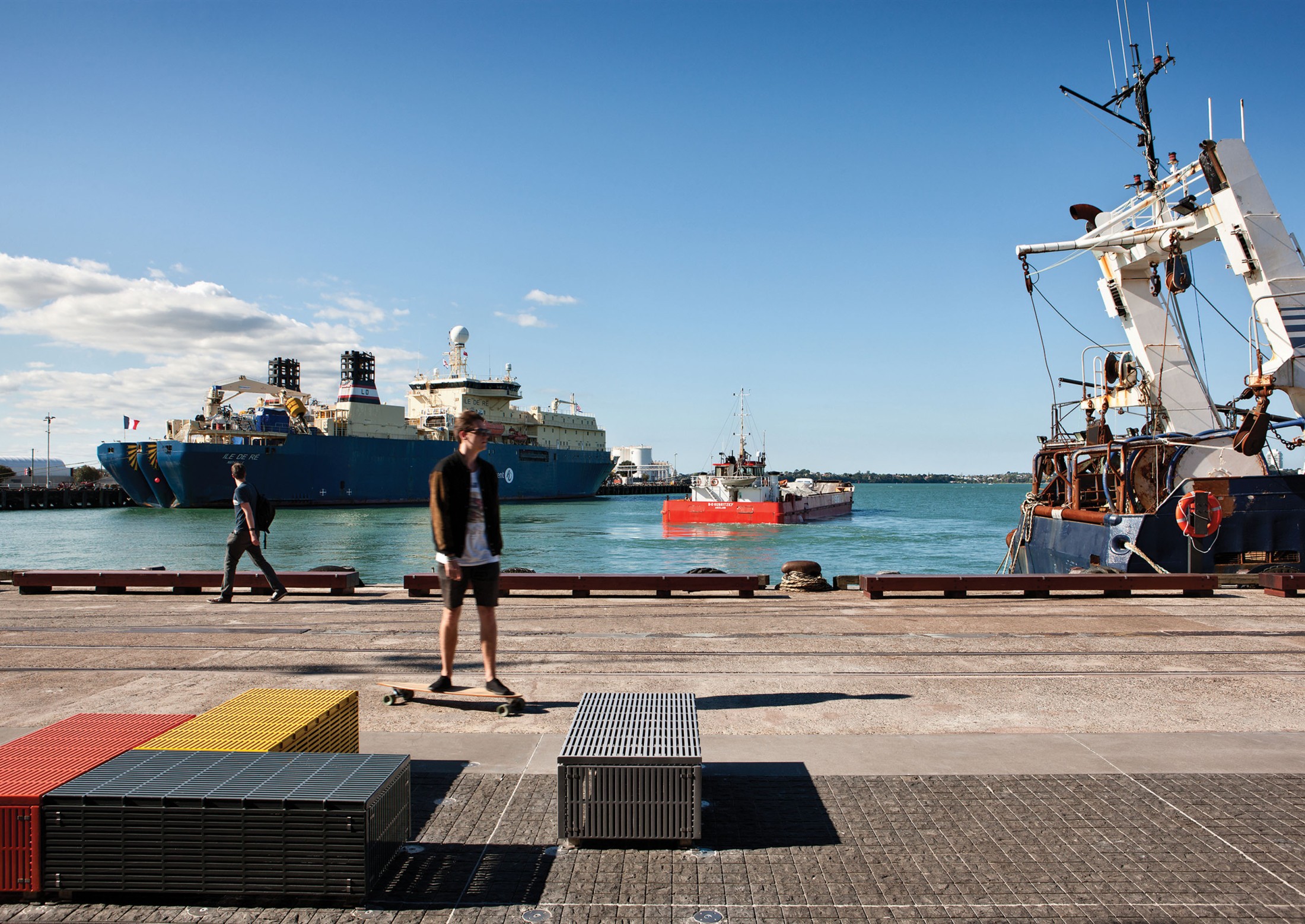
View Presentation
Working waterfronts are constantly in flux, with temporal qualities that engage all of our senses. Yet contemporary waterfront redevelopments are often characterised by the removal of the very qualities that attract us to these places.
At Auckland’s Wynyard Point redevelopment these conventions are challenged in a development that anticipates transforming a forlorn industrial and maritime precinct into a mixed-use precinct.
Underpinning the design are two key moves: retention and enhancing of fishing and maritime industries form the focus of new public experiences; and, interpreting the site’s peculiar archaeology of patterns and materiality to inform a new public landscape.
Jellicoe Harbour is a major tourism attraction centred on the retention of the fishing fleet, wholesale and retail fish and seafood markets, and new promenades and restaurants.
Silo Park is a layered public space that facilitates a range of hybrid uses; passive recreation, event space, youth precinct, industry and folly. Each program is new to the site, yet built from the pattern language, infrastructure and the mythology of place.
"To convince politicians not to demolish derelict industrial artefacts is one thing, but to convince them also to keep the fish trawlers in place instead of pushing them elsewhere for the benefit of a tourist waterfront is something else."
— Jury citation, 2014 Rosa Barba Landscape Prize, Barcelona
